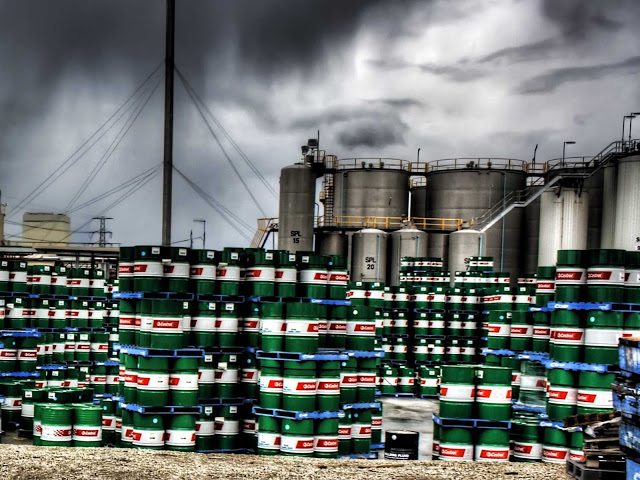The Organisation of the
Petroleum Exporting Countries (OPEC) has said that more than a $1 trillion of
frozen capex or cuts were recorded in 2015 and 2016.
Petroleum Exporting Countries (OPEC) has said that more than a $1 trillion of
frozen capex or cuts were recorded in 2015 and 2016.
Speaking on Monday at the 5th
Kuwait Oil & Gas Show, OPEC Secretary General, Mohammad Sanusi Barkindo,
said that the oil and gas sector would require an investment of $10 trillion by
2040 to meet the growing global energy need.
Kuwait Oil & Gas Show, OPEC Secretary General, Mohammad Sanusi Barkindo,
said that the oil and gas sector would require an investment of $10 trillion by
2040 to meet the growing global energy need.
He said the oil and gas sector
is expected to provide more than half of the world’s energy needs by 2040, with
their combined share relatively stable between 52 to 53 per cent over the
almost 25-year forecast period.
is expected to provide more than half of the world’s energy needs by 2040, with
their combined share relatively stable between 52 to 53 per cent over the
almost 25-year forecast period.
“In terms
of oil, we expect it to reach over 111 (mbpd) by 2040, an increase of around 15
million barrels per day (mbpd). We are expected to hit 100 mbpd during the
course of this year, much earlier than initially forecast. On top of this, we
should also remember that oil producers and companies must invest heavily
simply to offset the impact of natural decline rates, which is annually around
four mbpd”, he added.
of oil, we expect it to reach over 111 (mbpd) by 2040, an increase of around 15
million barrels per day (mbpd). We are expected to hit 100 mbpd during the
course of this year, much earlier than initially forecast. On top of this, we
should also remember that oil producers and companies must invest heavily
simply to offset the impact of natural decline rates, which is annually around
four mbpd”, he added.
He disclosed
that around three billion people do not have clean fuels for cooking, and 1.1
billion have no access to electricity.
that around three billion people do not have clean fuels for cooking, and 1.1
billion have no access to electricity.
Barkindo added
that “when we start up our cars, switch on a light, turn on our mobile
phones, we need to recognize that these everyday things are still unknown to
billions of people across the world who continue to suffer from energy poverty.
It is a universal obligation to address this major challenge”, he added.
that “when we start up our cars, switch on a light, turn on our mobile
phones, we need to recognize that these everyday things are still unknown to
billions of people across the world who continue to suffer from energy poverty.
It is a universal obligation to address this major challenge”, he added.
Culled from
the Guardian (Nigeria)
the Guardian (Nigeria)





